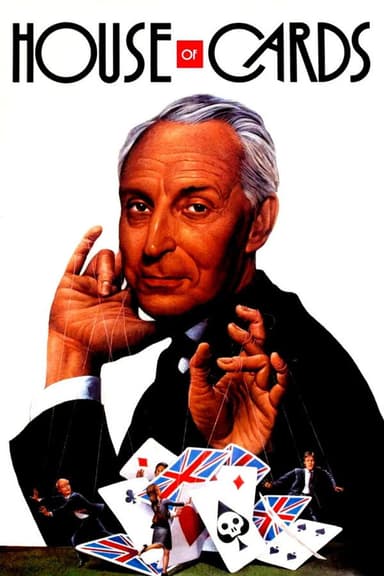
Game of Thrones
2011 • Action & Adventure, Drama, Sci-Fi & Fantasy • TV-MA
Seven noble families fight for control of the mythical land of Westeros. Friction between the houses leads to full-scale war. All while a very ancient evil awakens in the farthest north. Amidst the war, a neglected military order of misfits, the Night's Watch, is all that stands between the realms of men and icy horrors beyond.
Why you should read the novels
Reading George R. R. Martin’s A Song of Ice and Fire novels gives you access to layers of depth and detail the television series cannot match. The sprawling world is richly developed, and you get much more nuance with every character's thoughts and motivations. The immersive writing style pulls you so deeply into Westeros that each twist and turn feels personal, making the complex plots even more gripping.
The novels offer entire storylines and characters omitted or streamlined for television. You'll discover fascinating subplots, locales, and backgrounds that add new dimensions to the struggle for the Iron Throne. Each chapter, written from a character’s point of view, allows you to experience events through dramatically different perspectives, making the intricate web of politics and ambition much clearer.
Ultimately, the books allow you to experience Martin’s epic exactly as he conceived it. If you crave nuance, mystery, and the slow burn of anticipation, nothing compares to exploring the original pages. The depth and artistry of Martin’s prose bring his world to life in ways even the most stunning television adaptation cannot fully replicate.
Adaptation differences
One of the major differences is the handling of character arcs and personalities. In the books, characters like Sansa Stark, Stannis Baratheon, and Euron Greyjoy have motivations and inner conflicts that are often vastly more complex or different from their TV versions. The nuances of point-of-view storytelling also let readers explore characters’ thoughts, which frequently reveal contradictions, doubts, and ambitions not depicted on screen.
The show begins to diverge notably from the source material after the fourth season, when it overtakes the published novels. This means entire plots, such as Lady Stoneheart’s vengeful crusade or the tangled politics of the Dornish nobility, are altered, condensed, or dropped altogether. Supporting characters like Arianne Martell and Quentyn Martell, vital in the books, do not appear in the show at all, which dramatically simplifies Dorne’s involvement.
Another significant difference lies in the pacing and resolution of key events. The TV series, due to time and budget constraints, often rushes through significant developments, such as Jon Snow’s ascent or Daenerys’s conquest, sacrificing much of the buildup and subtlety that the books carefully cultivate over hundreds of pages. The ending of the TV series, especially, diverges from Martin’s as-yet-unpublished conclusion, leading to substantial dissatisfaction among book readers and viewers alike.
Additionally, the magic system and legendary history of Westeros are given richer background and gradual exposition in the novels. Characters like Young Griff and Victarion Greyjoy, plus plotlines like the Blackfyre legacy and the true nature of prophecy, are explored deeply in the books but omitted on screen. The result is a denser, more mysterious world in the source material, while the series presents a streamlined and more direct narrative.
Game of Thrones inspired from
A Feast for Crows
by George R. R. Martin
A Dance with Dragons
by George R. R. Martin
A Game of Thrones
by George R. R. Martin
A Storm of Swords
by George R. R. Martin
A Clash of Kings
by George R. R. Martin

